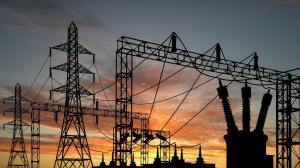U.S. agrees to help Baltic states bolster grid cybersecurity
The United States on Sunday agreed to work more closely with three Baltic countries to protect their electric sectors from cyberattacks.
“We see a crucial role that U.S. could play in assisting the Baltic states with strategic and technical support,” reads the declaration from the U.S. Department of Energy (DOE) and officials from Latvia, Lithuania, and Estonia. The four countries will establish a platform for sharing cybersecurity expertise over the next six months, the AFP reported.
The agreement is a recognition of the need to fortify energy infrastructure that could be a prime target for hackers in the event of geopolitical conflict. Russia’s neighbors are very familiar with that dynamic: Kremlin-linked hackers cut power in parts of Ukraine in 2015 and 2016.
The U.S. announcement with Baltic states was short on specifics. Aurelija Vernickaitė, an advisor to Lithuania’s energy minister, told CyberScoop that the cooperation would include sharing cybersecurity best practices and “targeted exercises.”
“Taking in to account [the] current security environment and emerging threats in the Baltic region, protection of energy infrastructure and reliable flow of energy becomes of critical importance,” Vernickaitė said.
A DOE spokesperson did not respond to a request for comment.
The document described “a critical moment” for energy cybersecurity in the Baltic states. It comes as the ex-Soviet countries look to disentangle themselves from Russian electric infrastructure. Long connected with Russian power systems, the Baltic states have committed to join the continental European grid network by 2025.
The coming decoupling from Russian power systems will bring a need for updated power equipment. Lithuanian officials said they hoped U.S. companies would help modernize and boost the security of industrial control systems used by Lithuanian utilities, The Baltic Times reported.
After meeting with Lithuanian President Gitanis Nausėda, Energy Secretary Rick Perry tweeted support for regional infrastructure projects that would lessen Baltic states’ “dependence on Russia for energy supplies and grid stability.”



